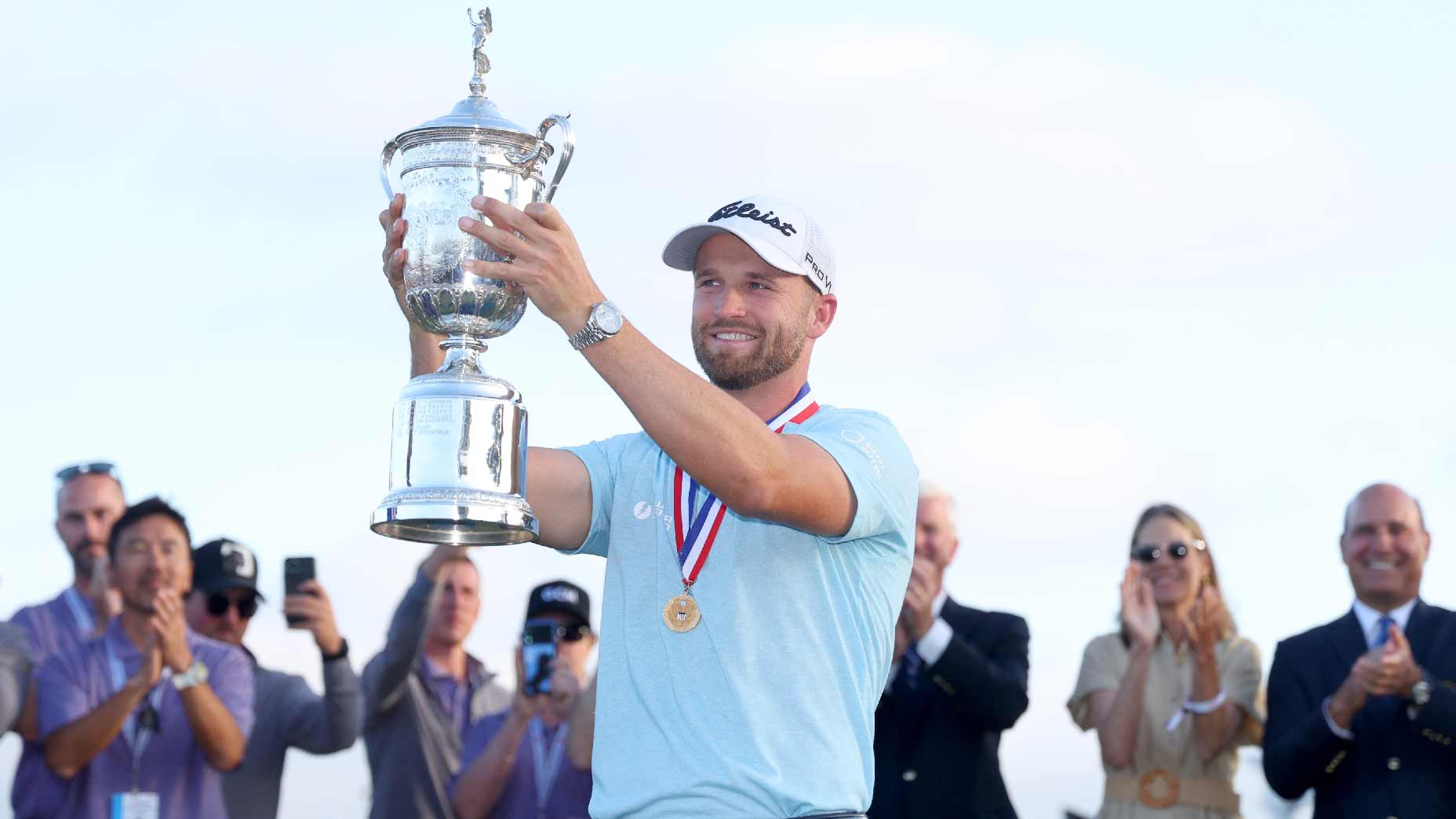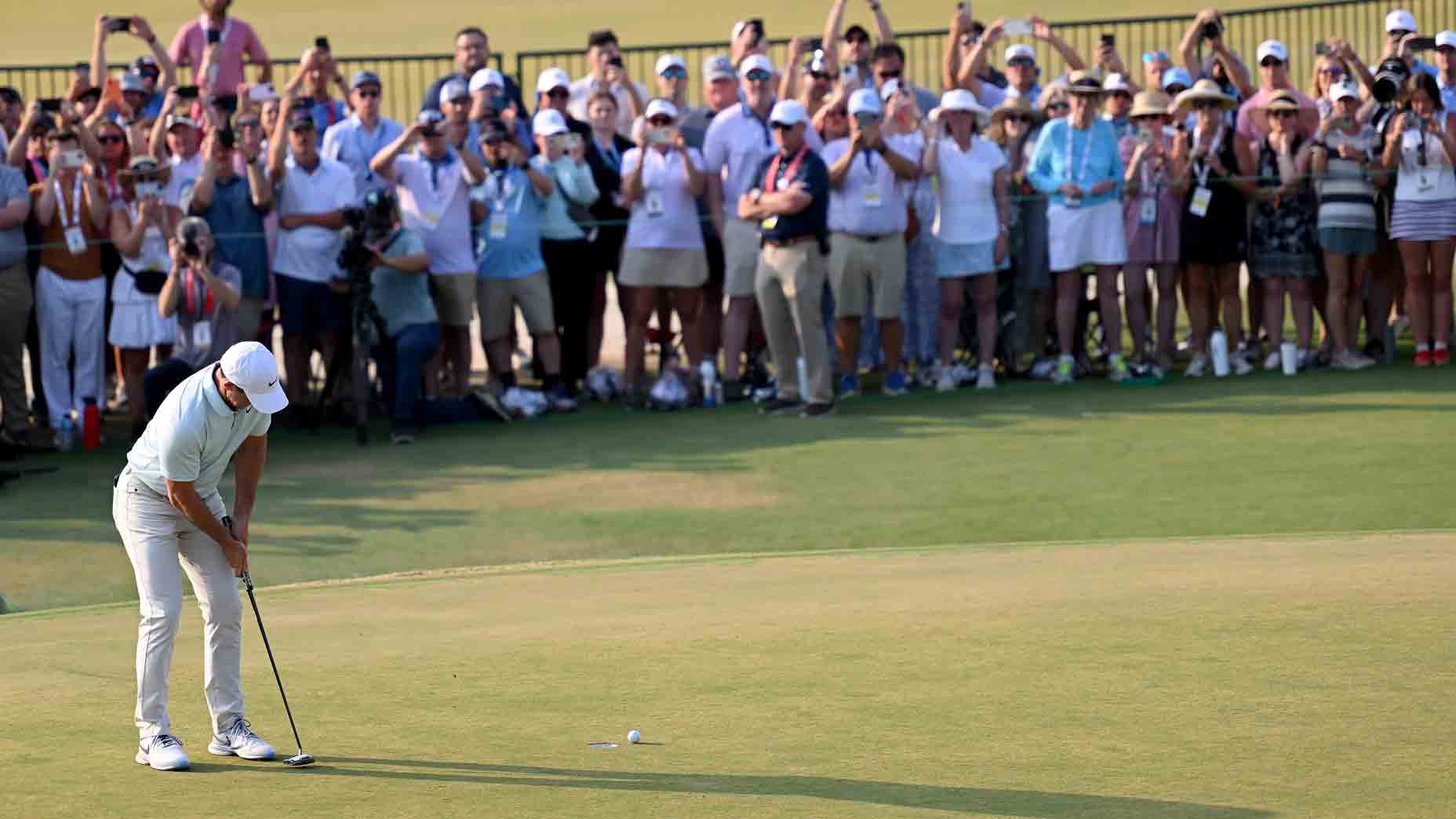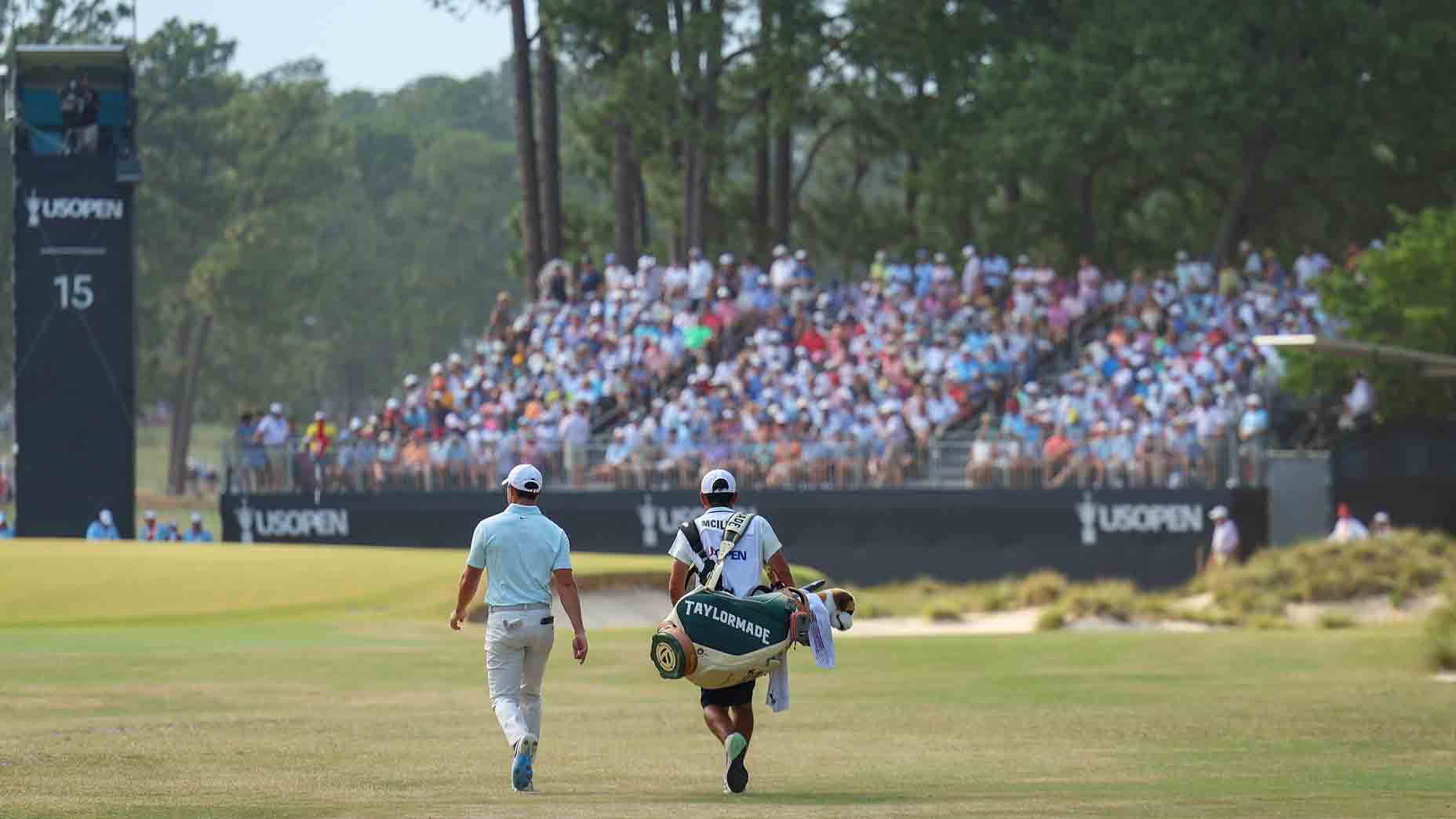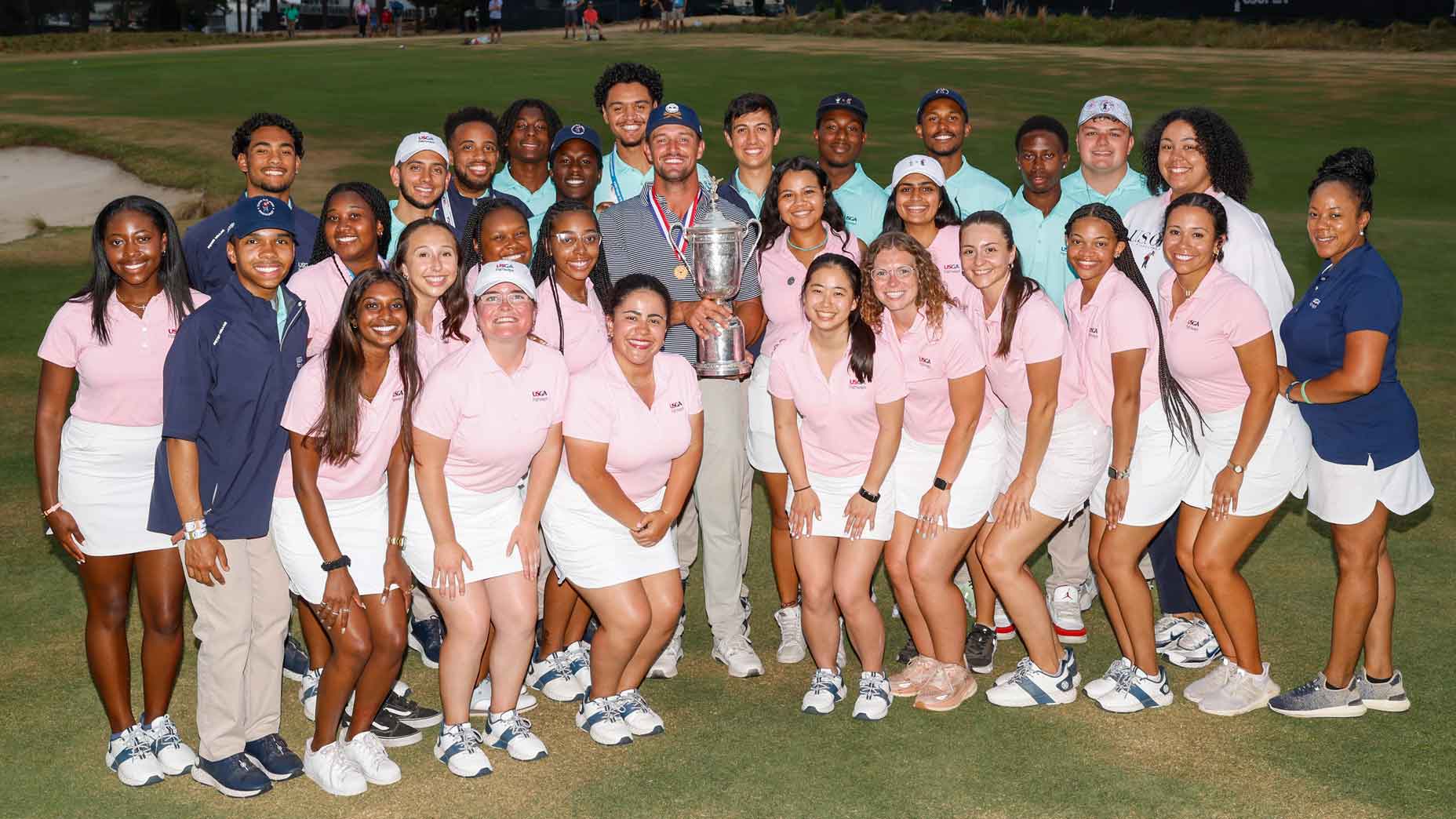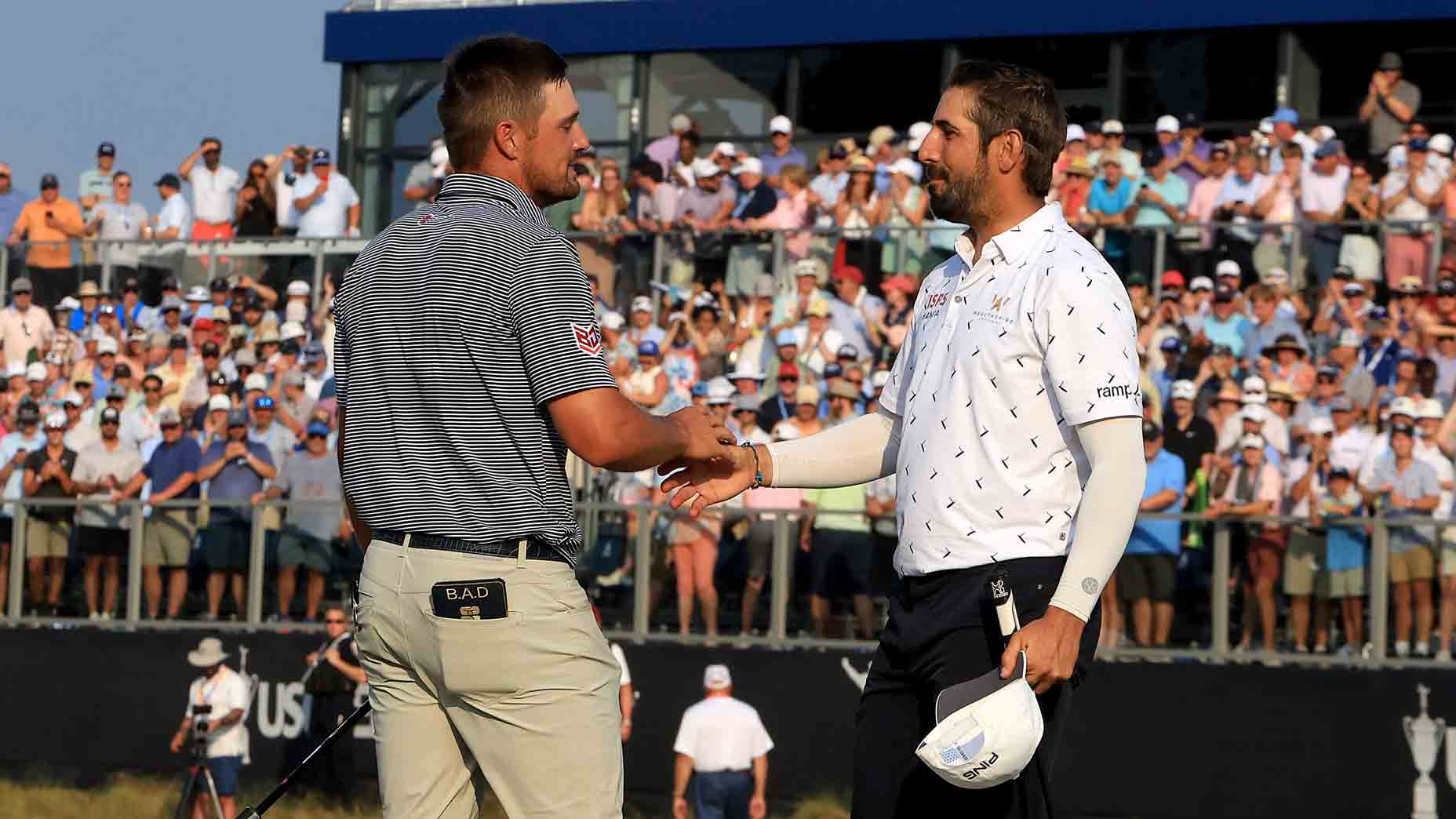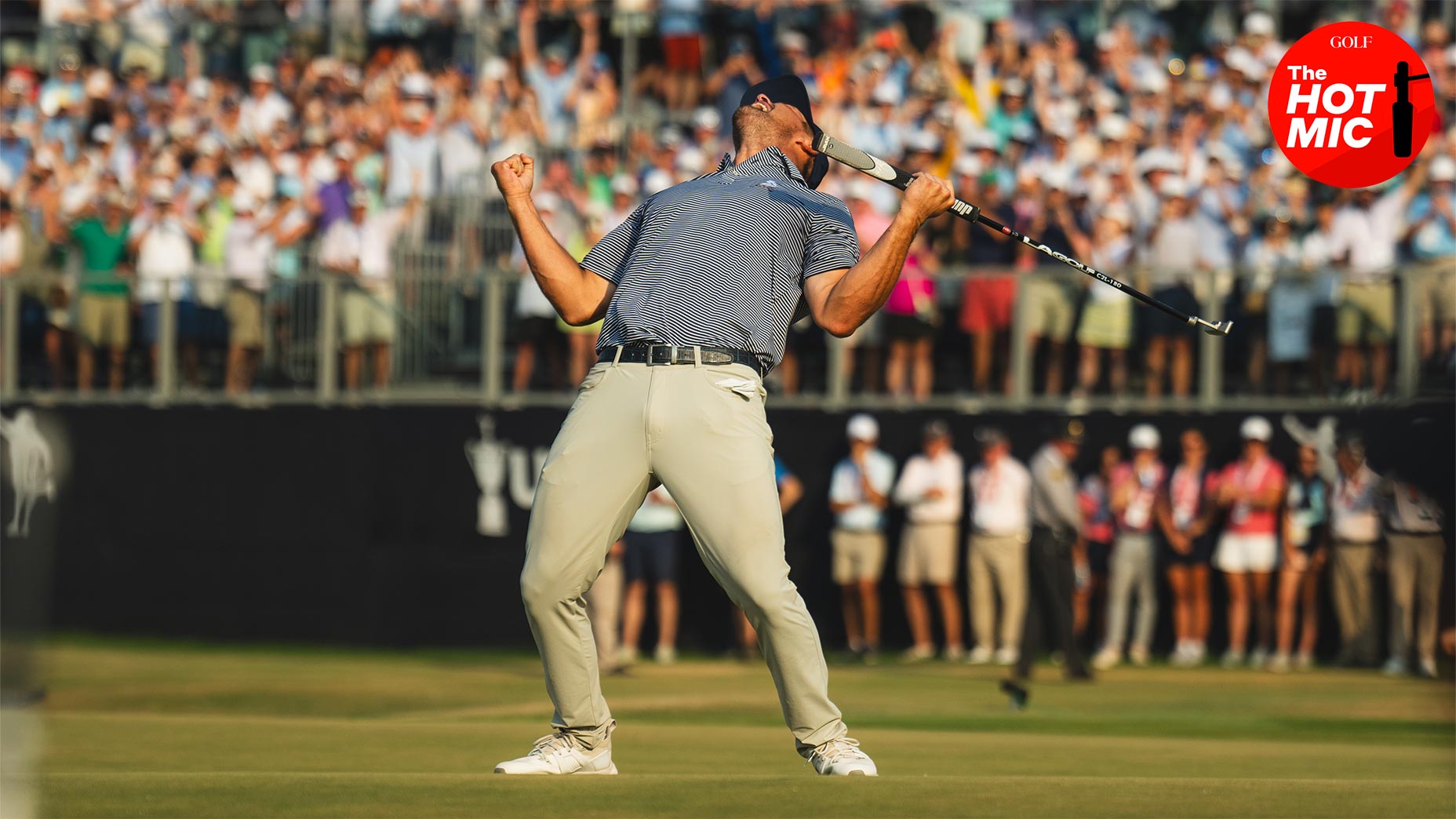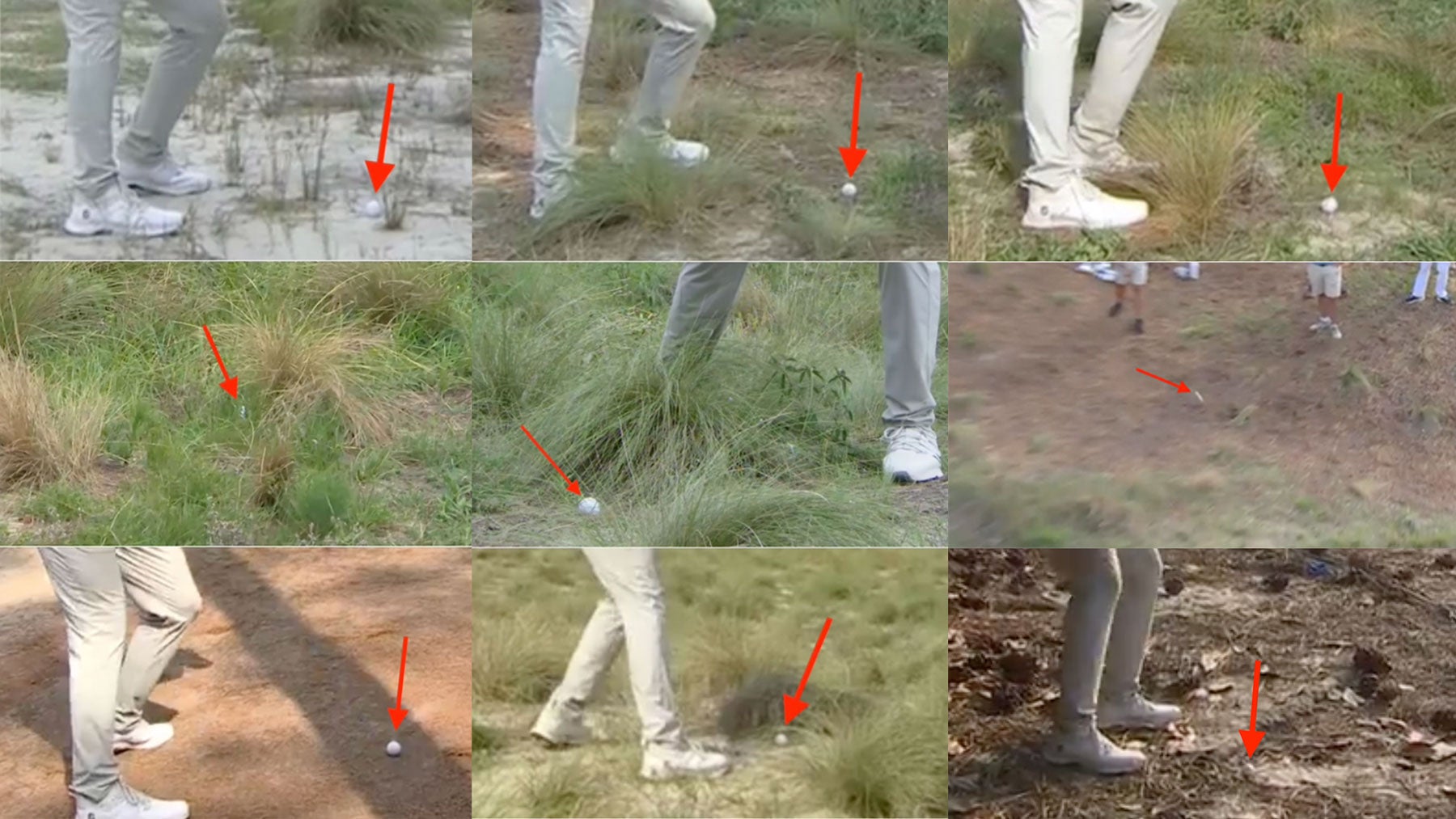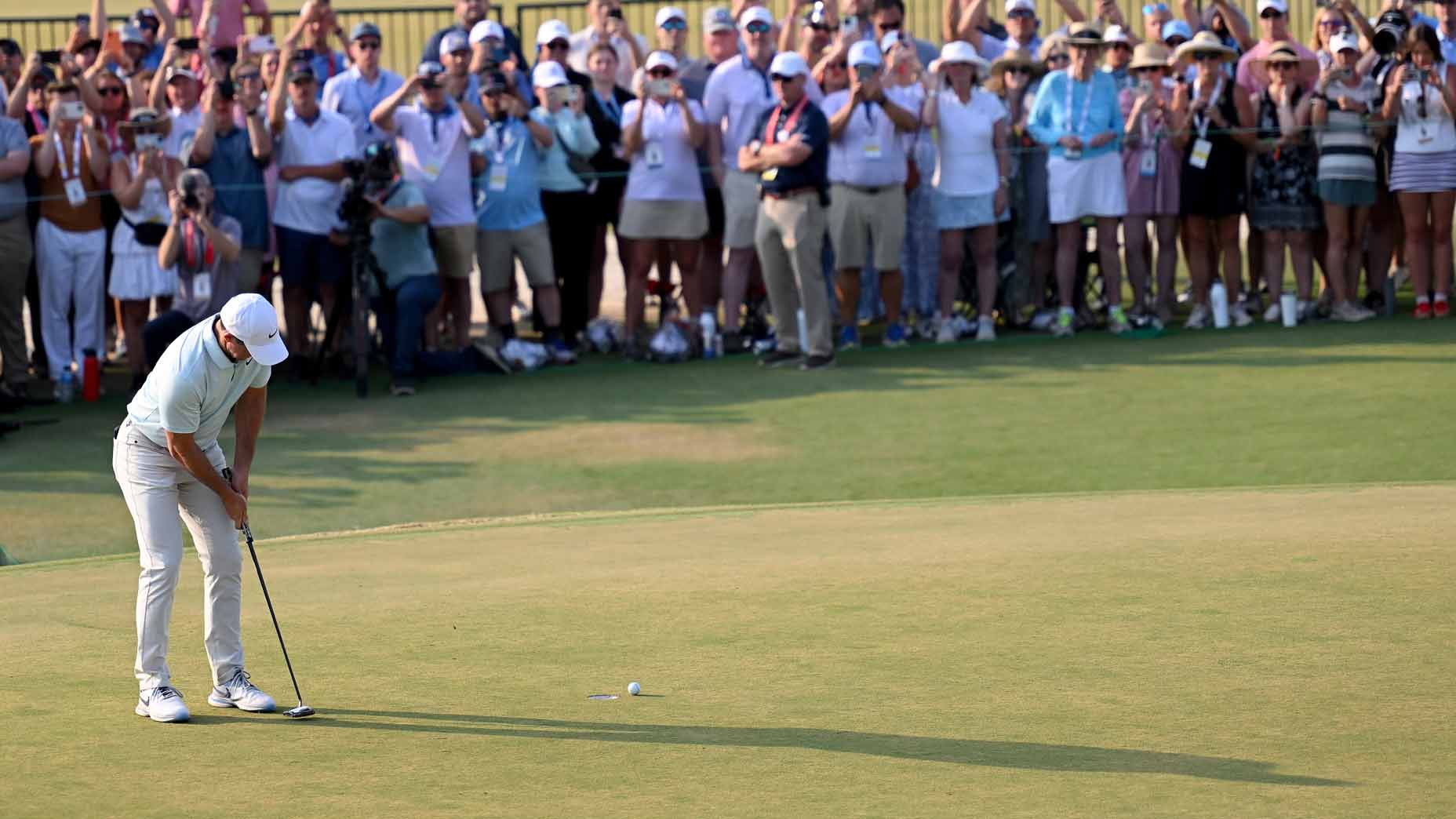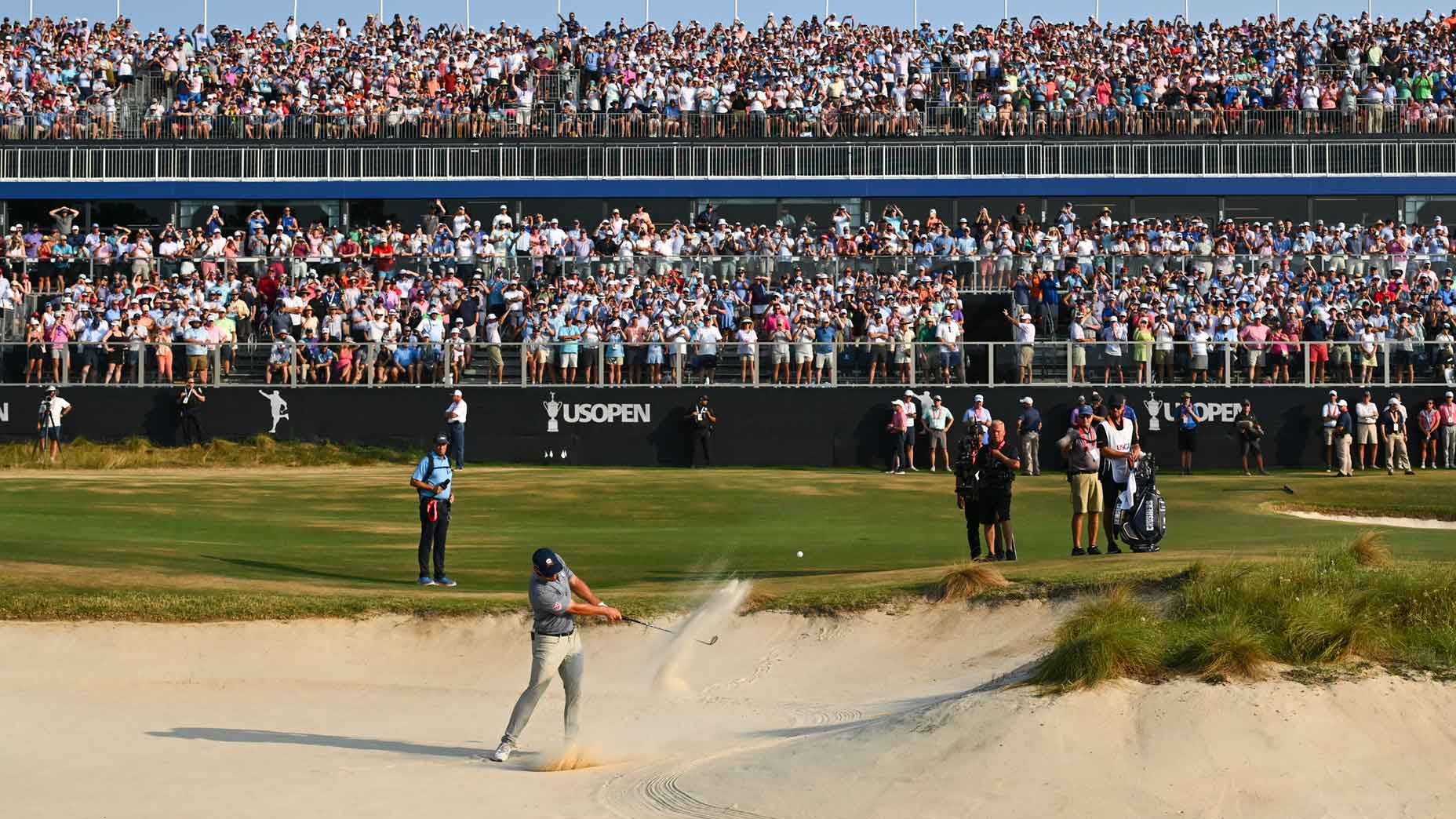Rory McIlroy makes surprisingly honest admission after more major heartbreak

Rory McIlroy at the U.S. Open on Sunday.
getty images
LOS ANGELES — Few tests in sport rival Sunday afternoons at major championships. Players fight, claw and cry; they optimize, strategize and agonize; they grind over 10-footers and sweat over 5-footers. And then, for every contender not in the coveted final pairing, comes the hardest part of all: They must hang around to see how their opponents fare. This, of course, is the one thing Tour pros — control freaks by nature — can’t do a damn thing about.
When Rory McIlroy holed out for his 16th par of the day on the 72nd hole of this U.S. Open, he knew exactly where he stood: one shot back of leader Wyndham Clark, who was back on the tee at 18. McIlroy was in the house at nine under, Clark was at 10. The math wasn’t complicated: a par or better for Clark at the last and he was the 123rd U.S. Open champion; a bogey, and he and McIlroy were headed for a two-hole playoff to decide the victor; a double-bogey or worse — unlikely but not unthinkable — and Mcllroy would claim his first major title in nine years.
Clark’s tee shot bled on him but still found the right side of the football-field-wide fairway, 197 yards from the hole. From there, he muscled an iron to the front-right of the green, leaving him 60 feet from glory. By this point, McIlroy was watching the action on a monitor in the scoring cabin near the clubhouse.
What was going through his head?
This is the part where a player is supposed to say: “I was just trying to stay focused in case there was a playoff,” or “To be honest, I was kicking myself for that wedge shot at 14,” or something light-hearted, like, “I was really just looking forward to cracking a cold beer.”
But McIlroy said something else:
“You don’t want to wish bad on anyone, but you’re really hoping for a three-putt. You’re hoping to somehow get into a playoff to keep giving yourself a chance. You’re rooting for one guy, and that guy is yourself at that point. Yeah, I guess you’re just hoping for the other guy to slip up or make a mistake or give you a glimmer of hope.”
Even by McIlroy’s refreshingly honest standards, this was a refreshingly honest admission. Of course he was thinking this way — just like deep down you might pull for a miscue from a coworker with whom you’re competing for a promotion — but thinking it and saying it are two different things.
Let us be clear: This is not a critique of McIlroy, who in recent weeks has been dialing back his time with reporters. It’s the opposite. It’s praise for his candor, for pulling back the curtain on his beautiful golfing mind and giving fans a peek out what makes it tick. If only all players were as genuine and plain-spoken.
Clark, as you likely know by now, did not three-putt. He hit a clutch lag to 17 inches then tapped in his par try for an outcome four days ago — or, for that matter, one day ago — few had seen coming. Wyndham Clark, a 29-year-old one-time Tour winner arguably best known for his longtime friendship with NFL star running back Christian McCaffrey, had out-dueled Rory McIlroy, a 34-year-old 23-time Tour winner, four-time major champion and leader of the free (golf) world.
That shorty from Clark? McIlroy never saw it, because he knew his fate already had been sealed. “I didn’t need to wait for the tap-in,” McIlroy said. “As soon as he cozied it up there, I was like, okay, get through this, and then go home and regroup.”
McIlroy has been doing a lot of that lately. After tournaments. After Player Advisory Committee meetings. After digesting the news that the PGA Tour had agreed to partner with its one-time nemesis, Saudi Arabia’s Public Investment Fund. It’s been a tumultuous ride for McIlroy this last 18 months or so, as he had inserted himself squarely in the middle of the fight for professional golf’s future. Sure, he’s accustomed to the pressure of tournament golf. But dealing with the stresses of board meetings, high-stakes press conferences and geopolitical clashes? That’s not something you learn on a range.
By McIlroy’s own admission, serving as the Tour’s leading light has taken a toll, both mentally and emotionally. Leadership is taxing, and it’s also time-consuming. Last month, McIlroy said he would be pulling back from sharing his thoughts on the PGA Tour-LIV battle. As he said at the PGA Championship, “Now that the wheels have been set in motion, it is time to focus on me and focus on playing great golf and trying to get back to winning ways.”
That reticence to reflect and explain and expound was evident this week in Los Angeles, were McIlroy did not sit for a pre-tournament press conference and then capped the number of questions he would field during his post-round media scrums.
Can you blame him? After what he’s been through, you cannot.
Can you miss him? Most assuredly. And maybe you do.
But worry not, Rory is still Rory. His form may come and go, but his honesty never relents.

